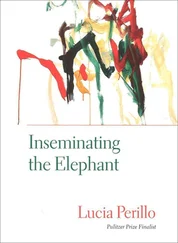When I go to nature alone now, I have to work to squelch my fears. My mind clicks with the constant work of self-surveillance — Will I get stuck? Will I be forced to chew the bitter bark of having to shout for a stranger to help me? Today my nerves have already been twanged from driving here in the Rube Goldberg machine that is my old van — through a concatenation of wires and pulleys, the side door screeches open and a ramp lowers, on lucky days. Questions scroll across my mind: Is this the last time I’ll be doing this? Is this the end of my career as a solo traveler in the wild? What am I doing here anyway? Do I love this anymore?
Too late for such questions: the van has arrived and the ramp operates successfully and I roll along the boardwalk that leads from the parking lot. I’m riding the kind of cart that must call up images of the elderly (though I try not to call them up), its basket loaded with the armamentarium of bird-watching. White snowberries hang on their stalks as the boardwalk thock-thock-thocks as I roll across the boards, a noise that doesn’t faze a song sparrow who sits on a thorny purple blackberry cane, its few yellow leaves in the process of being mottled with smut before they fall. The bird only blinks with boredom as I thock past.
This refuge is located in the delta of the river that originates from the Nisqually glacier, a steep corrugated tongue that lays off to one side of the route I climbed up Mount Rainier, what people call the standard or the tourist route (the word tourist uttered with contempt by the young men who worked each day on the upper reaches of the mountain). Climbing this route was easier than I expected and did not scare me, except when I had to step over a crevasse and snuck a glance into its bottomless blue hollow.
Probably my disease extended my life. Probably if I’d spent more time in the wilderness I would be dead already, being the kind of girl easily distracted, forgetful of correct procedure (in my grievance days I would have insisted on being called a woman, but girl seems more accurate, especially in regard to my ditziness). In the middle of trouble — the rock rolling down the glacier toward me, freezing my mouth in the shape of its wow —my mind flew elsewhere. Perhaps this was an early symptom of disease, this willingness to surrender to whatever was about to happen. People prone to these states have no business climbing mountains.
When I worked at the park, I lived in a cabin by this river ten miles downstream from the snout of the glacier, and for a while I sat on the bank each day and watched the little sticks that I threw into the river as a meditative exercise, to study the way they swirled. Usually they were swept downstream, but slower than I expected , and sometimes they entered an eddy that caused them to float uphill.
From these experiments I learned that the water does not offer what you want to see, and though the river is numbingly placid where its thick soup curls through the refuge, its currents are still dangerous. A few years back a man fell off a raft here — he’d paid to go on the land trust’s fundraising trip — and he’s never been found, however improbable this seems, since he was wearing a life vest. There are only a finite number of logs to get tangled under, and everything the river snags washes up eventually. Except those few objects that resist, as if they harbor a secret grudge against being reclaimed by a world where everything is categorized under its name and state of matter.
“Is that an ATV? Looks like a swell machine,” says a fellow traveler of the boardwalk. These comments (of a sort I often hear) mean to show compassion, I know, though I’m taken aback by their illogic. I try to sound breezy instead of cranky when I say, “No it surely is not swell!”
But cranks are also hypocrites, and when it suits my interests I intrude on the solitude of others, like that of two hard-core birders absorbed in trying to identify some bird that sits on the ground, far off in the meadow, white with tawny markings. The birders keep quiet so as not to frighten it away — birders are usually the kind of people who seek solitude in the midst of their small groups. These two squint through the shrubs that border the levee, too focused on their bird to notice me.
“Harrier” pronounces a woman in a headband and glasses, the headband pulled down to give a scrunched aspect to her face, a near-replica of my own face with its glasses and ski cap.
“No, the head’s not dark enough.” This from her companion, an older man who seems to hold the position of authority.
“Some other raptor?” I suggest, feeling liberated by the fact that our interaction has no disability-angle to it.
“It doesn’t have a raptor beak.”
“How about a band-tailed pigeon?” I say, pointing to a tree. “A couple of months ago I saw a band-tailed pigeon in a tree right over there.”
“Could be,” he says without paying me much attention; he can tell I’m just a dilettante. Yet his could be makes me feel a little cocky, since I threw in the band-tailed pigeon from left field, not knowing what one of them really looks like. I like the way he ignores me, the respite from being noticed.
“Or a shorebird?” At this point I’m just casting about.
“Too big.”
“Could be a plover,” the woman says in my defense.
“No, a shorebird wouldn’t be alone this time of year.”
“Mystery bird,” concludes the woman, shrugging, as she lets her binoculars fall flat on her chest. When she asks me, “How about you? You see anything?” I take it for a victory — that momentarily I’m just another bird-watcher. And maybe not just a bird-watcher, but a true birder , despite all the hardware I’m encumbered with.
From Michel de Montaigne, we have this: It is not enough to have gotten away from the crowd, it is not enough to move; we must get away from the gregarious instincts that are inside us . I believed this sort of advice until I got sick, which is when I saw the benefits of cultivating gregarious instincts, a conniving and self-serving realization. I suddenly wanted — needed — to have a few friends willing to take me swimming at the lake, to push the wheelchair through the mud into water deep enough for me to float off.
I know I’m lucky to have such friends, even though their friendship is a paradox, because there in the black lake water, it’s easy to do the kind of work that Thoreau recommends:
By a conscious effort of the mind we can stand aloof from actions and their consequences; and all things, good and bad, go by us like a torrent. . However intense my experience, I am conscious of the presence and criticism of a part of me, which, as it were, is not a part of me, but a spectator, sharing no experience, but taking note of it; and that is no more I than it is you. When the play, it may be the tragedy, of life is over, the spectator goes his way. It was a kind of fiction, a work of the imagination only, so far as he was concerned. This doubleness may easily make us poor neighbors and friends sometimes.
The doubleness is what gives me pause — is it fair to call in my friends when they suit me, and then send them away when I’m tired of their company? Probably not, or at least I shouldn’t pretend that I don’t weave this hypocrisy into the increasingly complicated web of my human relations.
The trail ends at a decaying barn, a remnant of the dairy operation that’s falling to ruin, its wooden shingles dropping and its white paint flaking off. The boardwalk ramps up to a viewing platform that’s already occupied by a family — young mother, grandmother, three children, all in black windbreakers with a logo on the back of an aircraft carrier. Their loud voices pierce the air — the windbreaker family doesn’t realize how hard I’ve worked to arrive here alone. If they knew, wouldn’t they be using the hush-tones of church? Should I tell them to shut up? And if I do, will it increase the chances of this being the kind of momentous-enough experience that will adequately commemorate my last sojourn alone? Maybe then an eagle will fly over us, or maybe it will sit down on my shoulder. I’d prefer not to share my eagle with the windbreaker family.
Читать дальше











![Various - Birds and Nature, Vol. 12 No. 5 [December 1902]](/books/745517/various-birds-and-nature-vol-12-no-5-december-thumb.webp)
![Various - Birds and Nature Vol. 11 No. 2 [February 1902]](/books/745533/various-birds-and-nature-vol-11-no-2-february-1-thumb.webp)